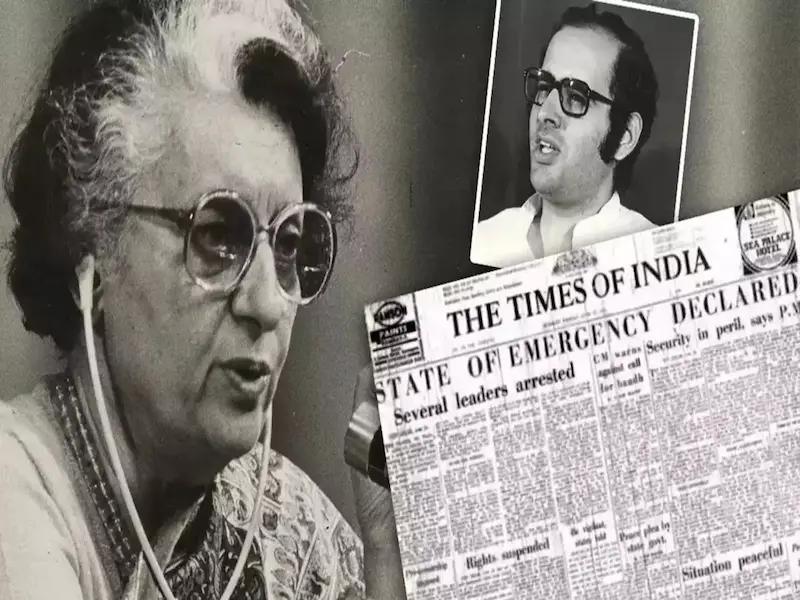
On the 50th anniversary of the Emergency, India reflects on a time when democracy was silenced
The Midnight That Changed a Nation
Shadows of Power – On the night of June 25, 1975, India’s democratic heartbeat was abruptly silenced. Then Prime Minister Indira Gandhi, citing internal disturbances, declared a state of Emergency under Article 352 of the Constitution. What followed was a 21-month period that many historians and political thinkers regard as one of the darkest in India’s post-independence history.
Civil liberties were suspended. The press was muzzled. Political opponents were jailed without trial. Over 100,000 people, including opposition leaders, activists, and students, were imprisoned. Newspapers carried blank editorials in protest, and radio broadcasts were tightly controlled. The 42nd Amendment, passed during this period, altered the Constitution in ways that centralized power and weakened judicial independence.
The Emergency wasn’t just a political manoeuvre, it was a psychological shock to a nation that had prided itself on being the world’s largest democracy. The very institutions meant to safeguard freedom were turned into instruments of control.
Resistance in Silence: The Unsung Heroes
Despite the oppressive atmosphere, resistance simmered beneath the surface. Underground newspapers circulated secretly. Students organized covert protests. Leaders like Jayaprakash Narayan, Atal Bihari Vajpayee, and L.K. Advani became symbols of defiance. Even within the Congress party, there were murmurs of dissent, though few dared to speak openly.
Ordinary citizens, too, played their part. Families hid activists. Lawyers fought legal battles against preventive detention. Journalists found creative ways to bypass censorship. The Emergency, ironically, became a crucible that forged a new generation of political consciousness.
When elections were finally held in March 1977, the people delivered a resounding verdict. The Congress party was voted out, and the Janata Party came to power. It was a moment of democratic redemption, a reminder that while power can be seized, legitimacy must be earned.
Why the Emergency Still Matters
Half a century later, the Emergency remains more than a historical footnote. It is a cautionary tale about the fragility of democratic institutions and the ease with which they can be undermined. It reminds us that democracy is not just about elections, it’s about dissent, accountability, and the rule of law.
In today’s political climate, where polarization is high and institutional independence is often questioned, the lessons of 1975 are more relevant than ever. The Emergency teaches us that vigilance is the price of liberty. That silence in the face of injustice is complicity. And that the strength of a democracy lies not in its leaders, but in its people.
Conclusion:
The Emergency was a time when India’s democratic soul was tested, and ultimately, reaffirmed. As we mark 50 years since that fateful night, the call is not just to remember, but to remain alert. Because history, if ignored, has a way of repeating itself. And democracy, once gagged, takes generations to find its voice again.